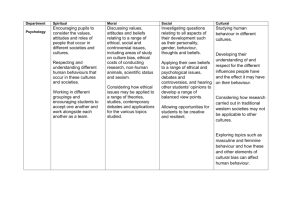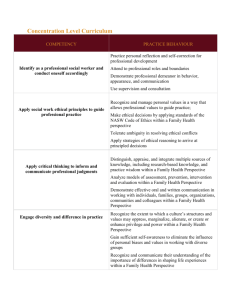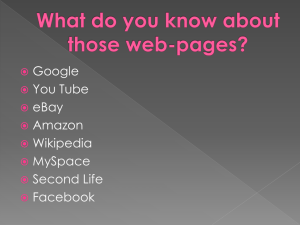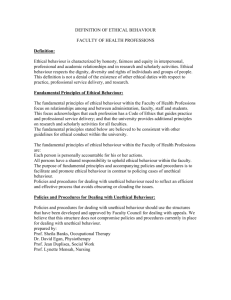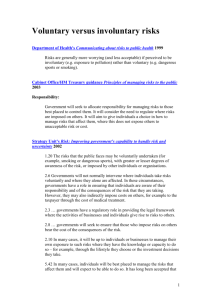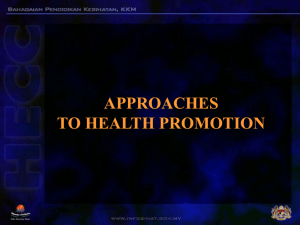Health Promotion and Improvements Methods
advertisement
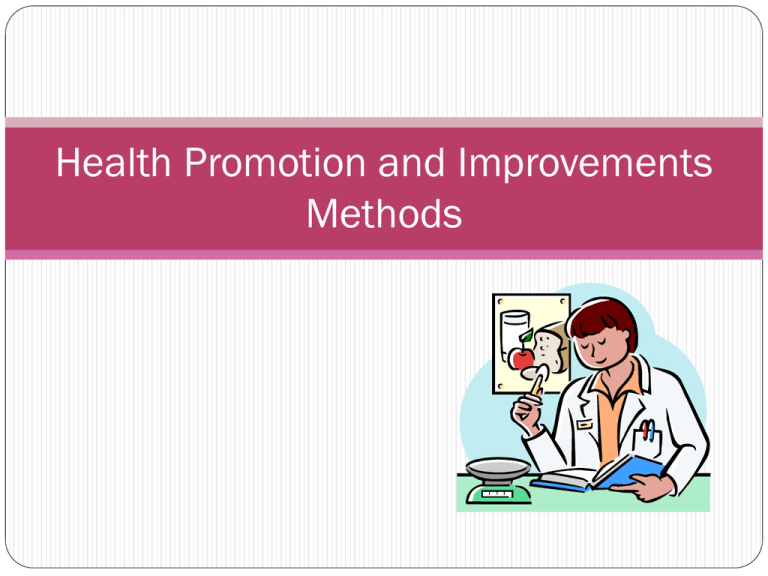
Health Promotion and Improvements Methods Learning Outcomes Understand the concept of Health Promotion Understand a range of approaches to Health Promotion Understand types of Health Promotion Understand Ethical Issues in Health Promotion Health Promotion What is your understanding of Health Promotion? What is involved in the process? The WHO (World Health Organisation) define Health Promotion as: ‘ Health Promotion is the process of enabling people to increase control over and to improve their Health’ Health Promotion involves providing information to others which will help to improve their Health and Well-Being. Different models of Health Promotion and Health Education attempt to promote health Five main approaches to Health Promotion: The Medical Approach The Behaviour Change Approach The Educational Approach The Client-Centred Approach The Societal-Change Approach Five Approaches to Health Promotion Medical Approach Medical intervention tends to be an effective way to prevent disease. It takes responsibility away from the individual. People generally trust the method, as strategies have been developed scientifically with trials to prove effectiveness. For e.g. Mammography a medical intervention to detect breast cancer. Educational Approach This aim is to give information, ensure knowledge and understanding of heath issues and to enable well-informed decisions to be made. Information about health is presented and people are helped to explore their values and attitudes and to make their own decisions. Examples include school health education programmes and breastfeeding clinics Group Work In your groups carry out an in-depth study of the Health Promotion Approach. Consider: The main elements of the approach How and where it is used? Examples of campaigns? The effectiveness of the approach, advantages and disadvantages Societal- Change Approach The aim is to effect changes on the physical, social and economic environment to make it more conductive to good health. The focus is on changing society, not on changing individuals. When a traditional behaviour of a society is proven to be unhealthy, a cultural change has to be achieved to improve health. For e.g. Ear defenders should be worn by anyone who is exposed to loud noise in their work as commended by Health and Safety at Work Act 1974. Behaviour-Change Approach The aim is to change people’s individual attitudes and behaviours, so that they adapt a ‘healthy’ lifestyle. Examples include teaching people how to stop smoking, education about ‘sensible’ drinking , encouraging people to become more physically active , look after their teeth, eat the right food and so on. Client-Centred Approach The aim to work with clients to help them identify what they want to know about and take action on, to make their own decisions and choices according to their own interest and values. One-to-one basis with individuals. For example contraception is a very personal issue and can be quite complex. There is a variety of methods to choose from, each with advantaged and disadvantages. Shock Tactics Presenting individuals with the potential consequences of their behaviour can be enough to frighten people into changing their lifestyle. For example drink driving adverts, health warnings on cigarette packets Types of Health Promotion Health can be promoted when people are fully fit, have a permanent disability or are chronically sick. Health promoters aim to enable people to be as well as possible Primary Health Promotion- Primary health promotion means preventing ill health occurring at all Secondary Health Promotion- Secondary health promotion involves detecting illness in early stages through screening or medical examination and giving treatment to correct any abnormality Tertiary Health Promotion- Tertiary health promotion involves preventing an existing condition from worsening Ethical Issues in Health Promotion Although Health Promotion aims to improve well-being, there are also ethical issues to consider. It is not the place of Health Professionals to make value judgments on the way others choose to live particularly if their behaviour does not cause harm to others. Assignment 1 Outline two approaches used in promoting health and discuss the advantages and disadvantages of each approach 500-600 words At least 2 references . Next Week Looking at types of Health Care Services Provided. Looking at the Organisation of Health Services.

